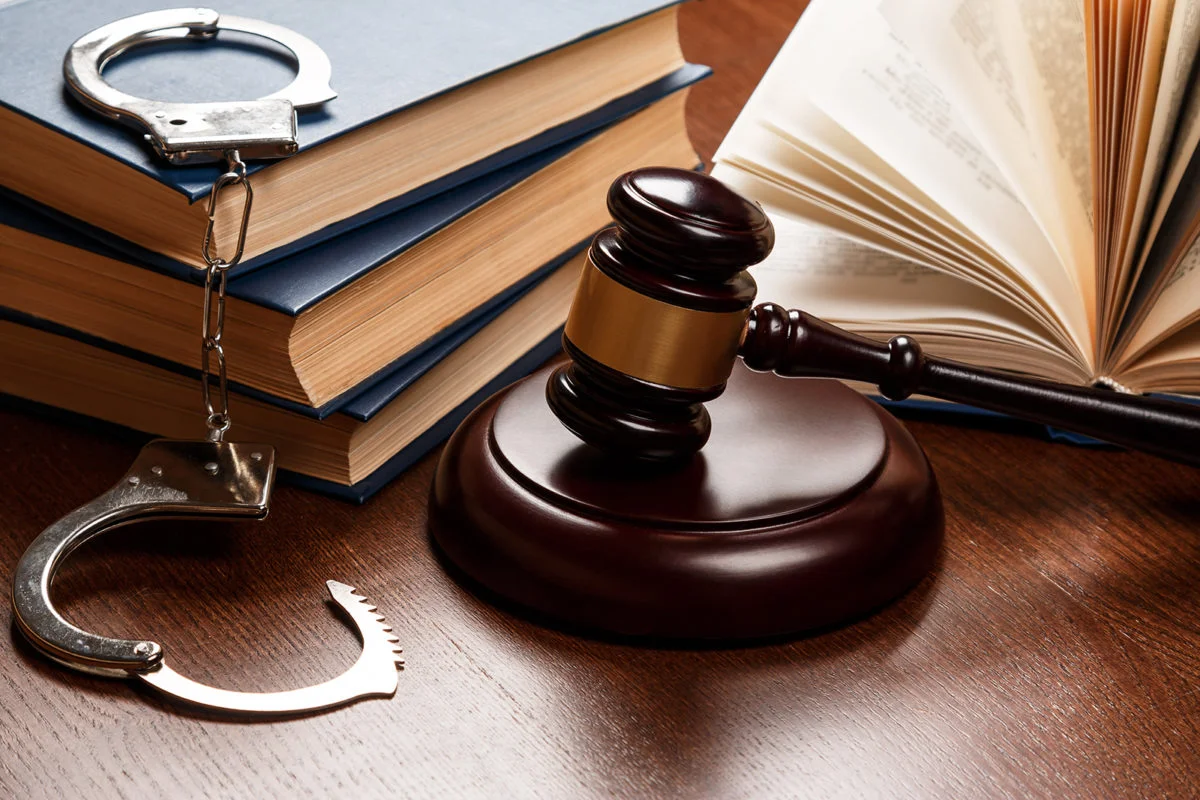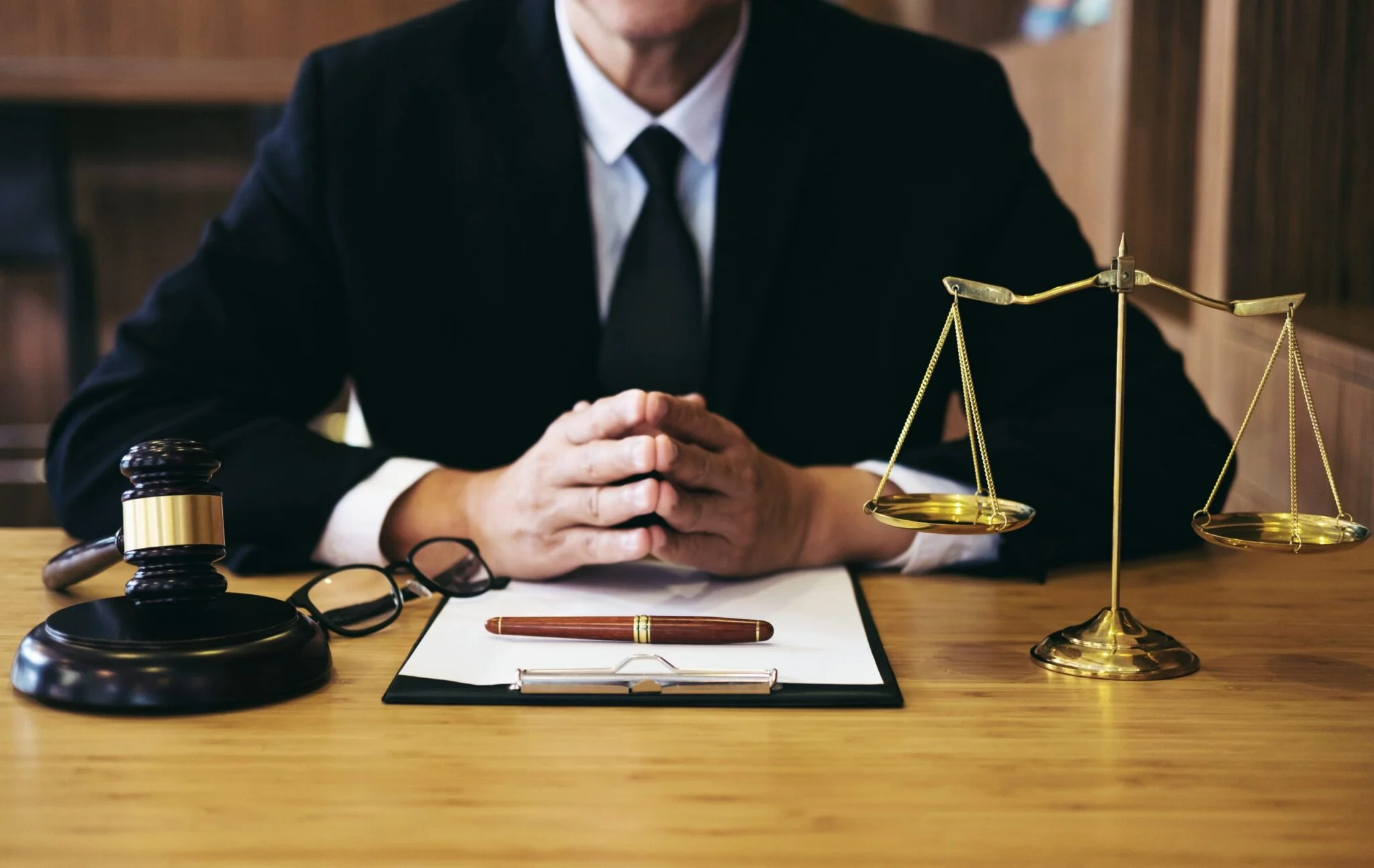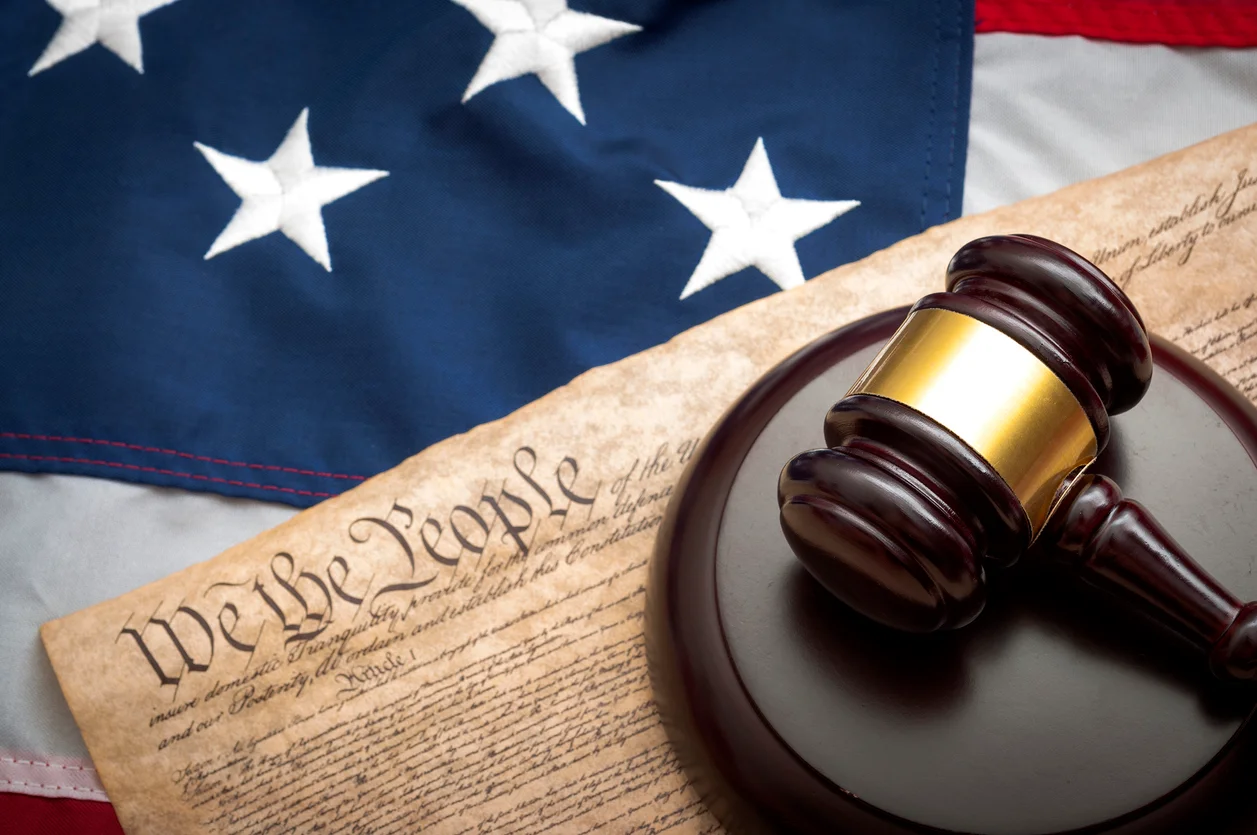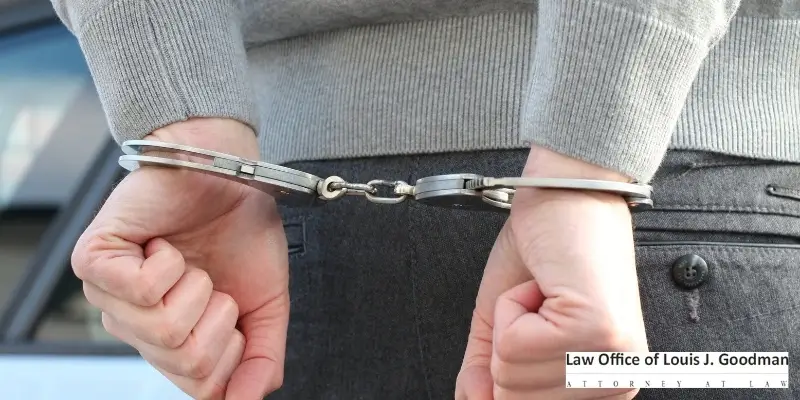|
|
Last Modified on Sep 16, 2025
California laws might seem a little intimidating when it comes to the dos and don’ts immediately after an arrest. However, an arrest doesn’t necessarily mean that you are guilty. With the right criminal defense attorney, you can ensure that your rights are protected and you prepare effectively for a favorable outcome.
Louis J. Goodman is a defense lawyer with over 30 years of experience in the California criminal system. His firm works to educate and legally represent residents of Alameda County and the state of California facing criminal charges.
A skilled Alameda County criminal defense attorney can offer invaluable guidance, ensuring that your rights are protected every step of the way. From the moment of arrest to the intricacies of the courtroom, having the right legal advice can make a significant difference in the outcome of your case.
The Arrest Process in Alameda County, California

Initial Encounter with Law Enforcement
When an individual is suspected of a crime in Alameda County, the first step in the arrest process involves an encounter with law enforcement. Police officers must have probable cause to believe a crime has been committed.
If this threshold is met, the person can be legally detained. It’s important to understand that from this point, any interaction with the police can have legal implications.
Miranda’s Rights and the Right to Remain Silent
Upon arrest, police are required to read the Miranda Rights to the arrested individual. This is a crucial constitutional right, ensuring that the person understands their right to remain silent and the potential consequences of waiving that right.
A criminal defense attorney will later emphasize the importance of these rights in court. It’s essential for the person arrested to know they don’t have to talk to the police and can request a lawyer.
Transport to Police Station and Booking
After an arrest, the individual is usually transported to a police station. Here, the booking process begins. This includes recording personal information, taking fingerprints, and possibly photographing the individual. This stage formalizes the person’s entry into police custody.
Determining Probable Cause for Detainment
For a person to remain in jail, law enforcement must demonstrate probable cause to a judge or magistrate. This is a legal requirement to ensure that there is sufficient reason to keep the individual in police custody. A criminal defense attorney can challenge the sufficiency of this evidence during later proceedings.
Setting Bail
After arrest, the focus often shifts to setting bail. Bail is a set amount of money that acts as insurance between the court and the person arrested. The amount of bail is determined based on several factors, including the severity of the alleged crime. A person can pay bail to be released from jail while awaiting further legal proceedings, such as arraignment.
Arraignment and Pleading
The final stage in the initial arrest process is the arraignment. Here, the person arrested is formally charged and asked to plead. With guidance from their defense attorney, the individual will decide whether to plead guilty, not guilty or no contest. This decision is critical as it sets the direction for future court proceedings.
Understanding each of these steps in the arrest process in Alameda County helps in preparing for what lies ahead. It’s a journey where knowledge, legal support, and careful consideration of each action play a vital role in navigating the complexities of the law.
Understanding Your Rights after an Arrest in California

Miranda Rights and Their Significance
Miranda Rights are a fundamental aspect of legal protection in the United States. After an arrest in California, police are required to inform you of these rights. This includes your right to remain silent.
It also informs you of your right to an attorney. The significance of Miranda Rights lies in their role in protecting against self-incrimination and ensuring fair legal representation.
Right to an Attorney and to Remain Silent
You have the right to an attorney, regardless of the nature of the charges against you. This is a crucial right, as an attorney can guide you through the legal process, advise you on your options, and speak on your behalf. Coupled with this is your right to remain silent.
You are not legally required to answer any questions by the arresting officer, except for providing your basic identification information. Exercising this right can be vital in protecting your legal interests.
Right to a Public Defender, If You Cannot Afford an Attorney
If you’re unable to afford a private attorney, you have the right to a public defender in California. This is an appointed attorney who will represent you at no cost. To avail of this right, you will need to provide information about your financial situation, which the court will use to determine your eligibility.
Having a public defender ensures that your right to legal representation is upheld, regardless of your financial circumstances.
These rights are designed to protect individuals during the critical phases following an arrest. Knowing and understanding them can make a significant difference in how you navigate the legal system in California.
What Happens If I Am Arrested in Alameda County, California?
Stay Calm and Comply with Law Enforcement
After an arrest, it’s crucial to remain calm and comply with the immediate directives of law enforcement. Resisting arrest can lead to additional charges. Remember, staying calm helps in making clear decisions in the subsequent steps.
Remain Silent
When arrested, you can exerciser your constitutional right to remain silent. Exercise this right. You are required to provide basic identification information, but beyond that, it’s advisable to wait for legal representation before discussing your case. This right protects you from self-incrimination.
Pay Attention to Miranda Warnings
Listen carefully to the Miranda warnings given by the police. These inform you about your right to remain silent and your right to an attorney. Understanding these warnings is crucial for your defense in a criminal case.
Request a Criminal Defense Attorney
As soon as you have the opportunity, request an attorney. Whether you choose a public defender, a private Alameda County defense attorney, or an experienced criminal defense attorney, having legal representation is essential. Your attorney will guide you through the legal process and advocate on your behalf.
Contacting a Defense Attorney or Public Defender
If you don’t already have a lawyer, you can request a public defender at your first court appearance. Alternatively, you can contact a defense attorney, many of whom offer a free consultation. An experienced criminal defense attorney can offer crucial insights and strategies for your defense.
Understand the Charges and Probable Cause
It’s important to understand the charges against you and whether there was probable cause for your arrest. Your criminal defense lawyer will review the evidence and can challenge any procedural errors or lack of probable cause in court.
Prepare for Arraignment and First Court Appearance
Your first court appearance will typically be an arraignment. Here, you will hear the charges against you, and you’ll have the opportunity to plead guilty, not guilty, or no contest. Your criminal defense attorney will advise you on the best course of action.
Discuss Bail Options
During or after the arraignment, the issue of bail will be addressed. The judge will determine whether to set bail and at what amount. If bail is set, you can pay it yourself, through a bail bond agent, or discuss other options with your attorney.
Understand the Timeline and Next Steps
After the arraignment, there will be a series of steps including a preliminary hearing, pre-trial motions, and possibly a trial date. Each step requires careful preparation and strategy, which your defense lawyer will handle.
Participate in Your Defense
Engage actively with your defense team. Provide them with all the necessary information and follow their advice. Being proactive in your defense can have a significant impact on the outcome of your case.
Prepare for Preliminary Hearing or Grand Jury
Depending on the nature of your case, there might be a preliminary hearing or a grand jury proceeding to determine if there is enough evidence to go to trial. Your criminal defense lawyer will represent you and challenge the prosecution’s evidence.
Plan for Trial or Plea Bargain
If your case goes to trial, your defense attorney will prepare your defense, including gathering evidence, interviewing witnesses, and developing legal strategies. Alternatively, your lawyer may negotiate a plea bargain with the prosecutor if it is in your best interest.
Understand Potential Outcomes
Familiarize yourself with the potential outcomes of your case, from being found not guilty, having the charges reduced, or, in some cases, a guilty verdict. Your attorney will explain all possible scenarios and their consequences.
Throughout this process, having the right legal representation, understanding your rights, and actively participating in your defense are critical. An experienced criminal defense attorney will guide you at every step, ensuring that your rights are protected and your voice is heard in the complex judicial system of California.
Why It’s Important to Seek a Defense Attorney When Arrested

American flag, US constitution and a judge’s gavel symbolizing the American justice system or the Judicial Branch of government ( Judiciary )
Defense Attorneys Provide Legal Knowledge and Expertise
A defense attorney brings a wealth of legal knowledge and expertise to your case. They understand the complexities of the law, criminal charges, and court procedures. Their experience is invaluable in navigating the legal system, interpreting laws, and understanding how they apply to your specific situation.
They Provide Strategic Defense Planning
An experienced criminal defense attorney can develop a strategic defense plan tailored to your case. They assess the evidence, identify weaknesses in the prosecution’s case, and craft a defense strategy that can include negotiating plea deals, preparing for trial, or getting charges dismissed.
Defense Attorneys Will Protect Your Rights
Defense attorneys are dedicated to protecting your rights throughout the legal process. They ensure that law enforcement officers have followed proper procedures and that your rights, such as the right to remain silent and the right to a fair trial, are upheld. They act as a safeguard against any potential violations.
Defense Attorneys Provide Guidance Through Legal Procedures
The legal system can be complex and intimidating. A defense lawyer guides you through every step, from arraignments to court appearances and pretrial motions. They explain the processes and what to expect, helping to demystify the legal journey and reduce anxiety.
Defense Attorneys Provide Expert Negotiation Skills
Defense attorneys have negotiation skills that are crucial in dealing with prosecutors. They can negotiate plea bargains, potentially reducing your charges to a less serious charge or negotiating a lighter sentence. Their ability to negotiate effectively can have a significant impact on the outcome of your case.
They Give Support and Advice
A defense attorney provides support and personalized advice. They understand that being arrested and facing criminal charges can be overwhelming. Their role extends beyond legal representation; they offer emotional support and practical advice on handling the stress of a criminal case.
Attorneys Represent You in Court
If your case goes to trial, having a defense attorney is essential. They represent you in court, present evidence, cross-examine witnesses and argue on your behalf. Their skill in court can be a determining factor in the outcome of the trial.
They Ensure a Fair Trial
Defense lawyers play a critical role in ensuring you receive a fair trial. They challenge any questionable evidence and arguments presented by the prosecution. Their presence helps balance the scales of justice, ensuring that the prosecutor’s office meets the burden of proof beyond a reasonable doubt.
Attorneys Maximizing Your Chances of a Favourable Outcome
Ultimately, a defense attorney maximizes your chances of a favorable outcome. Whether it’s getting charges reduced, dismissed, or achieving a not-guilty verdict, they work tirelessly to achieve the best possible result. Their expertise and dedication can make a significant difference in the resolution of your case.
Need a Defense Attorney? Contact Alameda County’s Louis J. Goodman for Fair Representation
Louis J. Goodman has practiced criminal law for about 30 years. He is now a criminal defense lawyer serving residents of Alameda County and the state of California.
As a former Deputy District Attorney, Louis acknowledges how difficult it can be to navigate the justice system and to get a fair representation. To this effect, his law firm not only represents individuals, but hopes to educate them to make positive changes in their own lives and to use those substantial positive changes to minimize the consequences of the criminal justice system.
If you have been arrested in Alameda County and need legal advise or representation, contact Louis J. Goodman’s office and he will advise you on the next steps to take.
10 FAQs about Being Arrested in Alameda County, California
What are my rights when I am placed under arrest?
When you’re placed under arrest, your rights include the right to remain silent, the right to be informed of the charges against you, and the right to an attorney. Law enforcement officers must inform you of these rights through the Miranda warnings. You have the right to avoid self-incrimination and to have an attorney present during any questioning.
How does the bail process work if I am arrested?
After arrest, a judge decides on your bail. Bail is a set amount of money acting as insurance between the court and you. If you can pay the bail, you’re released from jail but must return for all court appearances.
The amount is often determined by the severity of the crime, your criminal history, and flight risk. If you attend all court dates, the bail is refunded.
What should I expect during the booking process after an arrest?
The booking process involves recording your personal details, such as name and date of birth, at the police station. Fingerprinting, photographing, and cataloging any personal items happen during this process.
You’ll also be informed of the criminal charges filed against you. It’s a procedural step before you’re placed in police custody or released.
Can I contact a lawyer or family member after being arrested?
Yes, you have the right to contact a lawyer and, in most cases, a family member after being arrested. It’s advisable to contact an experienced criminal defense attorney first, as they can offer guidance and start working on your defense immediately. Attorney-client privilege ensures your communications with your attorney are confidential.
What are the potential consequences if I resist arrest?
Resisting arrest can lead to additional charges and complicate your legal situation. It may result in a more serious charge and potentially increase the severity of your sentence if found guilty. Compliance with law enforcement officers during an arrest is crucial to avoid further complications.
How long can they hold you in jail in California?
In California, the general rule is that you must be brought before a court within 48 hours of your arrest, not counting weekends and holidays. This first appearance is critical for setting bail and understanding the charges against you. If bail is set and you cannot pay it, you could remain in custody until your trial date or until bail is reduced.
Can you bail yourself out of jail in the US?
Yes, you can bail yourself out of jail in the US if you can pay the full bail amount set by the court. This amount varies based on factors like the nature of the crime and your previous criminal record. If you can’t afford the bail, a bail bond agent can help for a fee, typically 10% of the bail amount.
How does bail money work in the US?
In the US, bail money serves as a financial guarantee that you’ll appear for all court dates. If you attend all required court appearances, the bail is returned to you after the conclusion of your case, regardless of the verdict. If you fail to appear, the court keeps the bail, and you may face additional charges.
Does California have cash bail?
California has undergone significant changes in its approach to cash bail. As of 2023, the state’s Supreme Court ruled that judges must consider a defendant’s ability to pay before setting cash bail.
This decision aims to ensure that defendants are not kept in custody solely because they cannot afford bail. Judges now have to consider non-monetary conditions or reduced bail for those who can’t pay.









